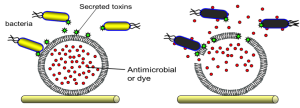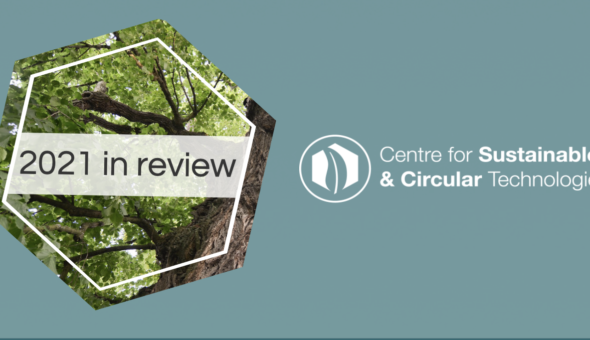
This research fits under the "pharmaceutical and wellbeing" theme in the CSCT. In paediatric patients, the immune response to burn trauma is similar to that observed in infection, making infections in burns difficult to diagnose. Burns have the potential to kill the patient, through infection with a toxin producing strain of staphylococcus aureus resulting in toxic shock syndrome. Importantly, this outcome is unrelated to the size of the burn. To prevent scarring and promote healing, a ‘Biobrane’ silicone-collagen dressing must be left on for 12 days. Removal prior to this results in scarring for life. However, if infection is present the patient could die in less than 24 hours.
This project focuses on the development and stabilisation of responsive nanocapsules for detection and treatment of bacterial infections in paediatric burns. As shown in the image, a stable nanocapsule containing an antimicrobial and/or dye is attached to a scaffold; in the presence of non-pathogenic ‘friendly’ bacteria the nanocapsule does not respond, however, in the presence of pathogenic ‘unfriendly’ bacteria the nanocapsule is broken open and the antimicrobial and/or dye is released. This response will allow the released antimicrobial to attack the bacteria, and the dye signal the changes in the wound environment, allowing appropriate intervention, before infection takes hold.
Serena Marshall is in the first year of her PhD, studying "Responsive vesicles in an aqueous cream emulsion for dermatological applications". She is supervised by Dr Toby Jenkins in the Department of Chemistry.
Respond


